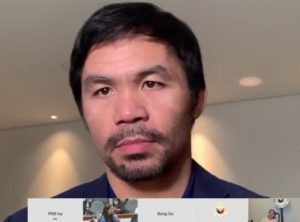MANILA, Philippines — The University of the Philippines (UP) has yet to receive an official communication from the Department of National Defense (DND) regarding a proposed dialogue following the latter’s unilateral scrapping of the 1989 agreement banning unauthorized entry of security forces in UP campuses.
UP vice president for public affairs Elena Pernia said Wednesday that there is no schedule yet for the dialogue between officials of UP and DND.
“When Secretary [Delfin] Lorenzana made that statement about his willingness to sit down with the University of the Philippines, we welcomed it because that is what we have been asking for,” she told ABS-CBN News Channel.
“It was not directly given to us. As Secretary Lorenzana said, it was made through trusted friends. These trusted friends I am not sure whether they have relayed it to us but as of now we have not received anything in writing,” she said.
Pernia reiterated the position of UP that it welcomes a dialogue with the DND regarding the abrogation of the pact.
“We have made a statement that we welcome it and that all we want is an agreement on the date and venue. We have not even gotten there on the date and venue. We are really hoping that it occurs soon,” she further said.
“Our position is a reconsideration of it. That’s where we stand and that’s what we are asking for. But together with that one is, we are asking for a discussion of the concerns and issues they have raised in the media, she added.
Lorenzana earlier sent a letter to UP President Danilo Concepcion, informing him of the termination of the UP-DND accord, taking effect on January 15.
In defending this move, Lorenzana said the agreement had been a hindrance to operations against communist rebels in the university.
Effect on UP community
Pernia noted that the abrogation of the agreement has an effect not only to UP itself but on faculty members and students.
She further said that “there are echoes of the same sentiment from people outside that the agreement has worked very well in the past 30 years.”
Pernia also pointed out that surveillance operations of security forces inside UP would be “antithetical” to academic freedom.
“Academic freedom means discussions are allowed in various positions without fear that there is somebody listening and that there is a consequence to this discussion. That is what we are concerned about,” she said.


